| Org.: Centro de História da Universidade de Lisboa - Fundação Oriente Museu - Fundação Calouste Gulbenkian, The Hebrew University of Jerusalem The Jews of Goa are a little known community of the past whose unique story is rarely told. While the Jews of Goa have scarcely been mentioned in academic works, or by the Indian government, the history of the Jews of Goa is both rich and interesting. This conference features the Jews of Goa, who resided at the site of Portuguese control of India during the colonial period. In 1534, Vasco da Gama succeeded in becoming the Viceroy of Portuguese India. Some of his advisors in India were Jewish. In 1560, the Inquisition was officially instituted in Goa. The conference relates to early history, but pays special attention to the ways in which Jews were affected by the Inquisition. Some Jews became conversos, New Christians, or Marranos, all terms used to refer to those who converted to Christianity (sometimes as a result of coercion or force). Despite the imposed disavowal of religion, many in the community continued to practice Judaism and keep recognizable traditions and beliefs alive for generations. For these reasons and more, they deserve to be remembered and commemorated for the ways in which they enhance our understanding of the history of Portugal and the story of Jews around the globe. |
|
Jerusalém, 18 e 19 de Dezembro iForal | Forais medievais portugueses: uma perspectiva histórica e linguística na era digital8/12/2016
Estado do projecto: Em curso Período de actividade: 2021-2023 REF: PTDC/HAR-HIS/5065/2020 Unidade de investigação principal: Centro de História da Universidade de Lisboa Unidades de investigação adicionais: Centro de Linguística da Universidade de Lisboa Instituição principal: Faculdade de Letras da Universidade de Lisboa Instituições participantes: Faculdade de Letras da Universidade do Porto; Universidade de Aveiro; Universidade de Coimbra; Universidade de Évora; Universidade Nova de Lisboa; Universidade de Lausanne Investigadora responsável: Filipa Roldão (CH-ULisboa) Co-investigadora responsável: Joana Serafim (CLUL) Equipa de investigação: Adelaide Maria Pacheco Lopes Pereira Millán da Costa; Amélia Aguiar Andrade; Ana Filipa Firmino Sequeira Pinto Roldão; Bernardo Maria Godinho de Sá Nogueira; Elsa Maria Gomes da Silva Pereira; Esperança Cardeira; Fernando Jorge da Costa de Brissos; Hermenegildo Nuno Goinhas Fernandes; Hermínia Maria de Vasconcelos Alves Vilar; Ivo José de Castro; Joana Augusto Veiga; Joana Faro Serafim; João Paulo Martins Silvestre; José Alberto Santos Rafael; Maria Cristina Almeida e Cunha Alegre; Maria Helena da Cruz Coelho; Maria Joana Matos Gomes; Maria João Violante Branco; Maria Manuela Tavares dos Santos Silva; Mariana Soares da Cunha Leite; Mónica Castillo Lluch; Osvaldo Manuel da Rocha Pacheco; Ricardo Lema Sinde Rosmaninho Seabra Consultores do projecto: Pascal Bourgain (École Nationale de Chartes); Elena Nieddu (U. Roma Tre); Elli Bleecker (KNAW Humanities Cluster); Inés Fernández-Ordóñez (U. Autónoma de Madrid); Maria Ana Ramos (Romanisches Seminar-University of Zurich); Laura do Carmo (Fundação Casa de Rui Barbosa) Bolseiros do projecto: ----- Ao longo dos séculos XII e XIII, a construção do reino de Portugal, centrada na definição de fronteiras territoriais, na delimitação de poderes e na estabilização sócioeconómica dos seus habitantes, conheceu a contratualização escrita de relações jurídicas de longa vigência. Reis e senhores laicos ou eclesiásticos puserem por escrito a sua relação com as comunidades e definiram normas de convivência entre habitantes, como os seus direitos e deveres: esses escritos chamavam-se forais. Considerando as cartas de foral outorgadas pelo poder régio, os chamados forais breves, este projecto visa reinterpretar a natureza destes documentos (circunstâncias de outorga e de transmissão textual) e a sua função no quadro amplo de relação entre os concelhos e a administração régia. Para tal, este projecto assenta numa ideia-chave: interdisciplinaridade. A História e a Linguística fornecerão à investigação as suas ferramentas conceptuais e metodológicas; e as Humanidades Digitais, as necessárias ferramentas instrumentais para potencializar resultados e tornar eficaz a sua pesquisa e divulgação. O grande objectivo instrumental do projecto é constituir um corpus de forais medievais portugueses, editado criticamente e de modo electrónico, para reflexão histórico-linguística. Desse corpus farão parte os forais régios portugueses concedidos até 1279, as suas cópias e as suas traduções vernaculares produzidas até ao final do século XV. Para tal, desenvolveremos metodologias inovadoras, assentes em ferramentas semiautomáticas para a optimização das tarefas, disponibilizando os resultados do projecto em acesso aberto. Mas, por que razão estudar forais medievais portugueses em 2020? Em primeiro lugar, existem razões de natureza eminentemente científica: o estudo dos forais antigos tem sido negligenciado em favor dos novos forais do século XVI (Reforma Manuelina), formal e materialmente mais atractivos para os historiadores; os estudos existentes ou se encontram demasiado dispersos por editoras com fraca capacidade de divulgação ou carecem de validação científica por serem, sobretudo, desenvolvidos não por historiadores, mas sim por eruditos locais. Em qualquer dos casos, não existe uma perspectiva de conjunto que olhe para a totalidade dos forais régios. Este projecto pretende ultrapassar esta lacuna. Em segundo lugar, existem razões de natureza societal: em pleno século XXI, as comunidades locais e os poderes públicos (câmaras, arquivos, museus e escolas) continuam a comemorar a data de outorga do seu foral mais antigo, actualizando a memória e a identidade colectivas. O interesse pelo foral da terra justifica-se facilmente: nele, as comunidades conhecem as mais antigas formas de organização colectiva dos seus antepassados e a sua relação com os poderes instituídos, sobretudo com o rei, em questões de natureza política e fiscal, de justiça e de actividades económicas; mais, estes documentos permitem ainda uma aproximação aos recursos naturais disponíveis na comunidade e à sua exploração, e à paisagem e à topografia, ainda reconhecíveis hoje pelas comunidades. Este projecto conta com uma equipa com os melhores especialistas nacionais nas áreas da História Medieval (cidades, poder régio, cultura escrita), da Linguística (filologia, história da língua e crítica textual) e da Informática aplicada às Humanidades, investigadores e consultores internacionais de renome que assegurarão a fundamental comparação com outras historiografias, e um conjunto de investigadores juniores, que acompanharemos na sua formação avançada. A instituição proponente e as instituições participantes, espalhadas de Norte a Sul do país, e a Universidade de Lausanne fornecem garantias de robustez científica e de capacidade de gestão deste projecto, onde se retomam parcerias já bem estabelecidas e fundamentadas. O objecto de estudo deste projecto é disso um bom exemplo. O estudo dos forais medievais pela IR e Co-RI iniciou-se em 2005, contando já com várias publicações e apresentações públicas internacionais, assim como actividades de disseminação de conhecimento pela comunidade. Neste já longo percurso, a IR e a Co-IR, respectivamente especialistas das áreas de História e de Linguística, ensaiaram metodologias e reflexões sobre os forais medievais portugueses que, neste projecto, aprofundarão e desenvolverão ao serviço da ciência e da comunidade. Com este projecto, promove-se a salvaguarda de um dos mais antigos exemplos de património escrito dos poderes locais, das cidades e do reino de Portugal, e, com a sua memória preparamos uma melhor resposta a alguns dos grandes objectivos das Nações Unidas para 2030, como o conhecimento sobre justiça, defesa, equidade, sustentabilidade económica e ecológica dos povos. Project status: Ongoing
Execution period: 2021-2023 REF: PTDC/HAR-HIS/5065/2020 Main research unit: Centre for History of the University of Lisbon Additional research units: Centro de Linguística da Universidade de Lisboa Main institution: School of Arts and Humanities of the University of Lisbon Participating institutions: Faculdade de Letras da Universidade do Porto; Universidade de Aveiro; Universidade de Coimbra; Universidade de Évora; Universidade Nova de Lisboa; Université de Lausanne Principal investigator: Filipa Roldão (CH-ULisboa) Co-investigator: Joana Serafim (CLUL) Research team: Adelaide Maria Pacheco Lopes Pereira Millán da Costa; Amélia Aguiar Andrade; Ana Filipa Firmino Sequeira Pinto Roldão; Bernardo Maria Godinho de Sá Nogueira; Elsa Maria Gomes da Silva Pereira; Esperança Cardeira; Fernando Jorge da Costa de Brissos; Hermenegildo Nuno Goinhas Fernandes; Hermínia Maria de Vasconcelos Alves Vilar; Ivo José de Castro; Joana Augusto Veiga; Joana Faro Serafim; João Paulo Martins Silvestre; José Alberto Santos Rafael; Maria Cristina Almeida e Cunha Alegre; Maria Helena da Cruz Coelho; Maria Joana Matos Gomes; Maria João Violante Branco; Maria Manuela Tavares dos Santos Silva; Mariana Soares da Cunha Leite; Mónica Castillo Lluch; Osvaldo Manuel da Rocha Pacheco; Ricardo Lema Sinde Rosmaninho Seabra Project consultants: Pascal Bourgain (École Nationale de Chartes); Elena Nieddu (U. Roma Tre); Elli Bleecker (KNAW Humanities Cluster); Inés Fernández-Ordóñez (U. Autónoma de Madrid); Maria Ana Ramos (Romanisches Seminar-University of Zurich); Laura do Carmo (Fundação Casa de Rui Barbosa) Project fellows: ----- The Kingdom of Portugal was formed in the 12th-13th centuries, by establishing its borders, defining ruling powers and securing the social-economic stabilization of its inhabitants. This construction included written pacts that secured long-duration legal relationships. Kings, on one hand, and both secular and ecclesiastical lords, on the other hand, put in writing rules governing both their relationship with the communities and the relations among the inhabitants, namely their rights and duties. Such written charters were called forais. Our project exclusively targets the municipal charters granted by kings, labelled short charters, aiming to reinterpret the nature of such documents (the circumstances in which charters were granted and their text passed on) and the role they played in the wide scope of the relationship between the municipalities and royal administration. In order to fulfil such goals, the project is guided by a key driver, i.e. an interdisciplinary approach. History and Linguistics will provide researchers with the conceptual and methodological tools required, while Digital Humanities ensure the key instruments for maximizing the potential of the results and rendering their research and dissemination effective. The main instrumental objective of our project is to create a corpus of Portuguese medieval forais, relying on a critical edition and electronically supported, for subsequent historical-linguistic reflection. This corpus shall include all Portuguese forais granted by the kings until 1279, as well as their copies and vernacular versions produced until the end of the 15th century. To achieve this goal, we will develop innovative methodologies based on semi-automatic task-optimization tools. Project results will be made available in open access. Why study Portuguese medieval forais in 2020? On one hand, we have eminently scientific reasons. First, research on old municipal charters (forais antigos) has been neglected, preference being given to the new municipal charters granted in the early 16th century (the Manueline Reform), which are formally and materially more attractive to the historians. Second, the existing studies are either scattered among publishers with weak dissemination capabilities or they lack scientific validation because they were mostly made by local erudite people, rather than historians. In both cases, there is no global approach to the entire set of royal municipal charters. Our project aims to fill this gap. On the other hand, we have societal reasons. In the 21st century, local communities and authorities (town halls, archives, museums and schools) keep on celebrating the date in which their oldest municipal charter was granted, updating collective memory and identity. Community interest in the local foral can be easily understood; the charter contains the oldest forms of collective organization of people’s ancestors and their relationship with the established powers – namely the King, in matters pertaining to politics, taxation, justice and economic activity. Moreover, the forais enable people to know the natural resources then available to the community and their exploitation, as well as the landscape and the topography – still perceivable by the communities today. The IR and the Co-IR, confident that this project relies on a scientifically feasible and necessary and socially pertinent research, propose for this application a team formed by top national experts in the areas of Medieval History (cities, royal power, written culture), Linguistics (philology, history of the language and textual criticism) and Informatics applied to Humanities, renowned international researchers and consultants for ensuring comparison with other historiographies and a group of junior researchers, whose advanced training will be monitored.The proposing institution and the participating institutions, from all regions of Portugal, and the University of Lausanne, ensure the scientific robustness and management capability of our project, in which we resume previously established sound partnerships. The object of this project is a fine example of such continuity. The IR and the Co-IR began to study medieval forais in 2005 and their work includes several international papers and public presentations, as well as knowledge dissemination activities in the community. Along their lengthy experience, the IR and the Co-IR, experts respectively in History and Linguistics, have already tried out methodologies and reflections on Portuguese medieval forais, which shall be developed and deepened in this project at the service of science and the community.Our project aims to promote the safeguard of one of the oldest collections of written heritage of local communities. By preserving their memory, we want to fulfil some of the UN major objectives for 2030, namely the acquisition of knowledge on justice, defence and the economic and ecological sustainability of peoples.
Faculdade de Letras da Universidade de Lisboa, sala D. Pedro V - 9 de Dezembro de 2016, 15h
Faculdade de Letras da Universidade de Lisboa, sala 2.10 - 7 de Dezembro de 2016, 18h
|
Candidaturas abertasPrograma Interuniversitário de Doutoramento em História: mudança e continuidade num mundo global (PIUDHist) 2023-2024
Bolsa de Doutoramento Pedro Almeida Ferreira - Santa Casa da Misericórdia de Lisboa Chamadas / CallsCiclo de Seminários
2023-2024 Caminhos da Historiografia: História e Ciências Sociais dos anos 40 à atualidade Prazos: 25 de Abril e 31 de Julho ExposiçõesCiclos CH-ULisboaNewsletter CH-ULisboaSubscreva a nossa newsletter
Filtros
|

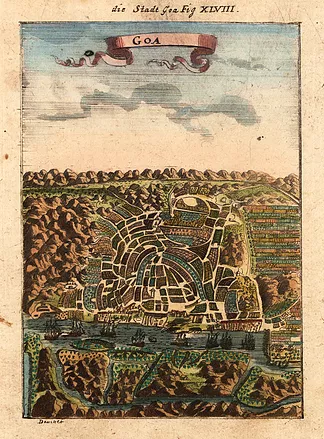
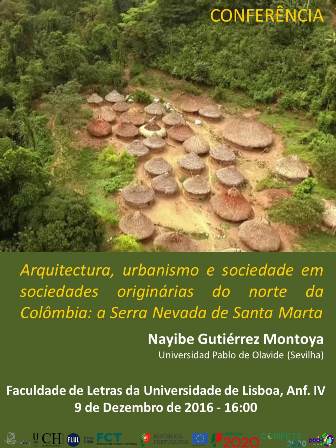
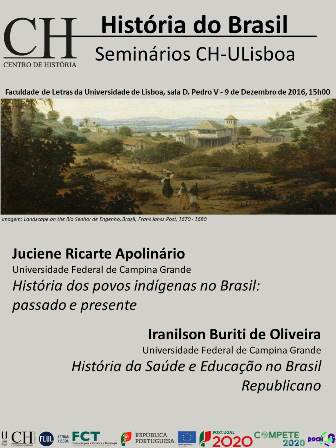
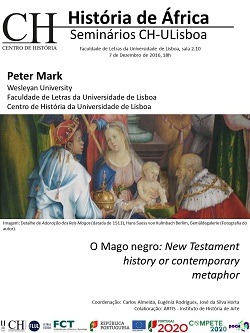
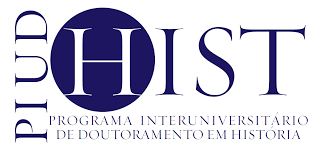
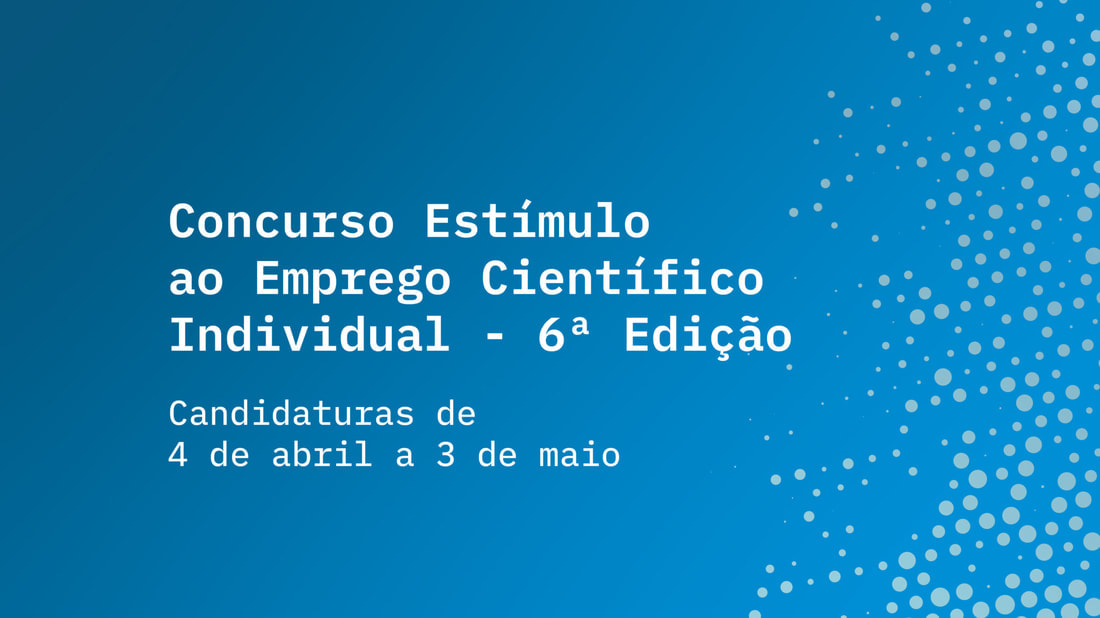
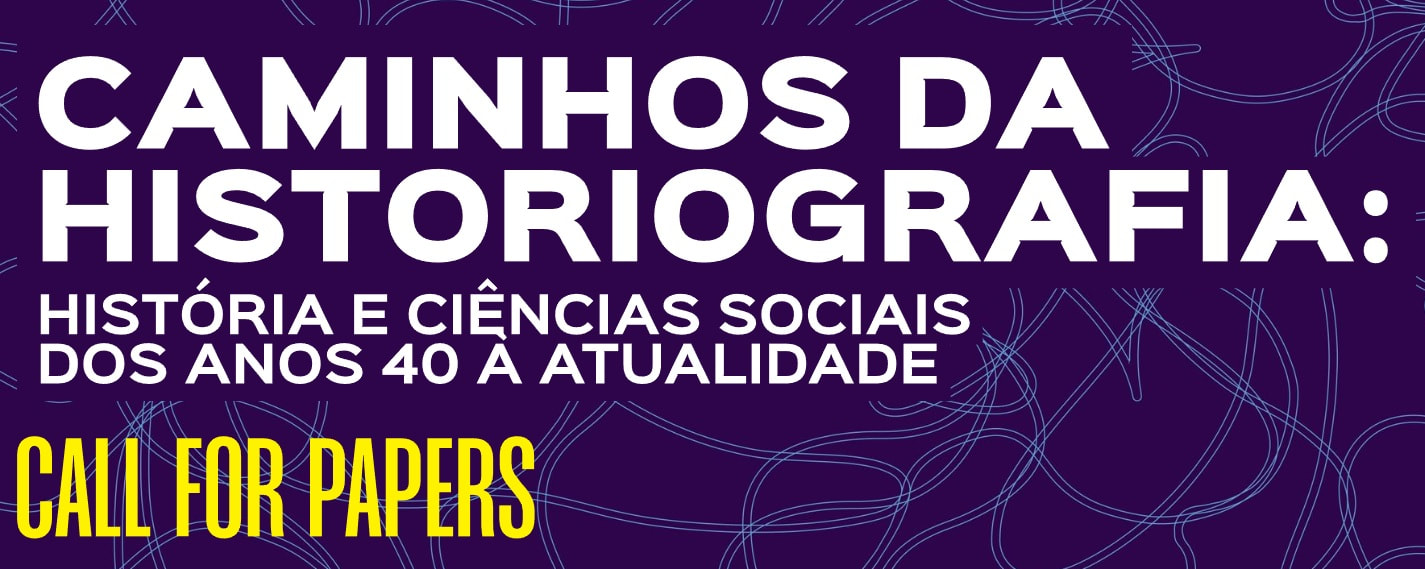
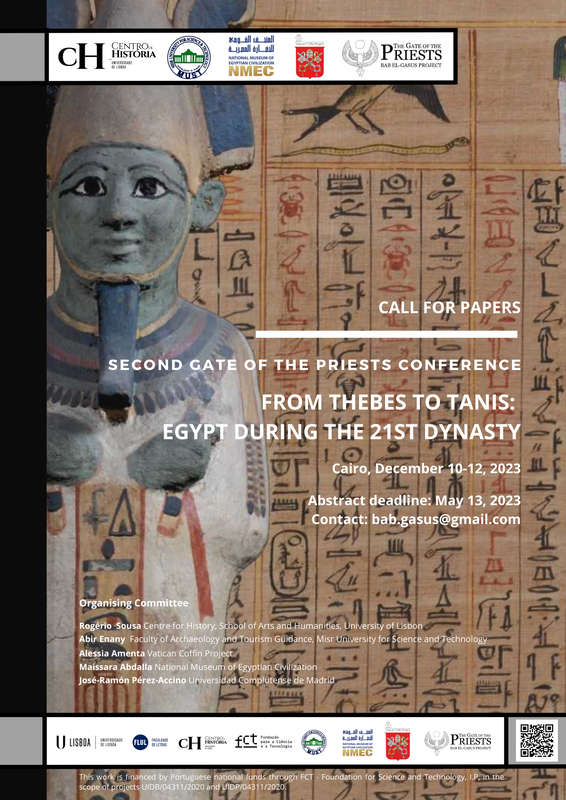
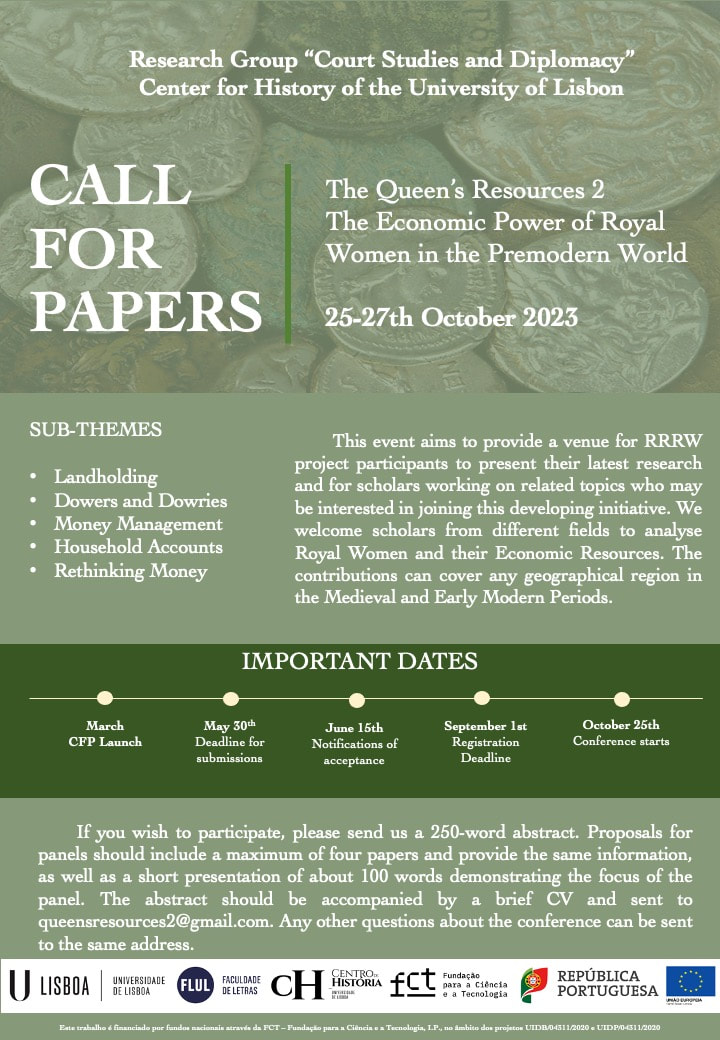
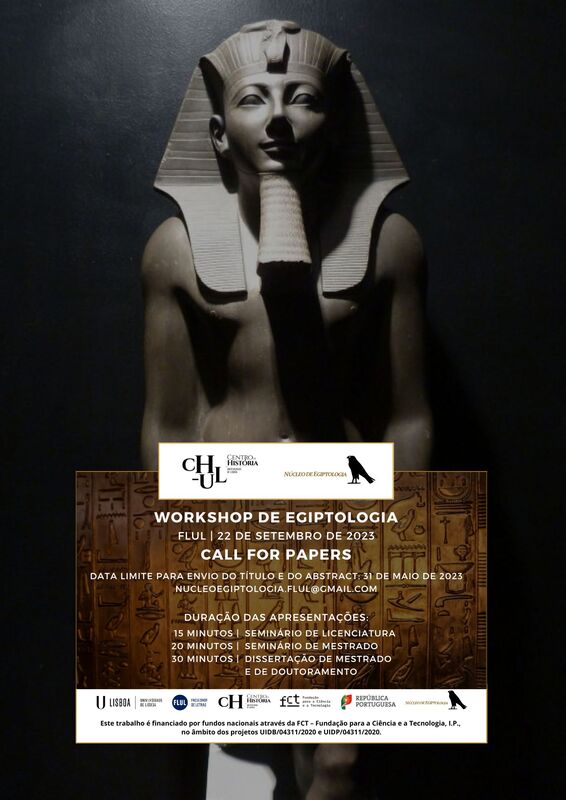
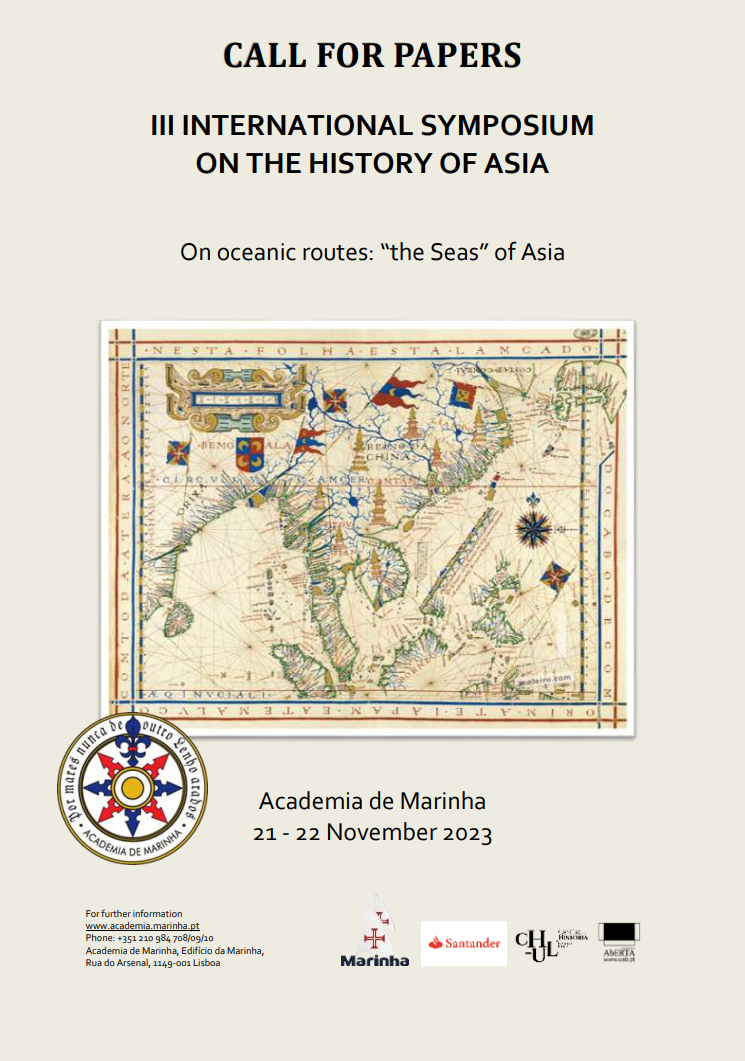
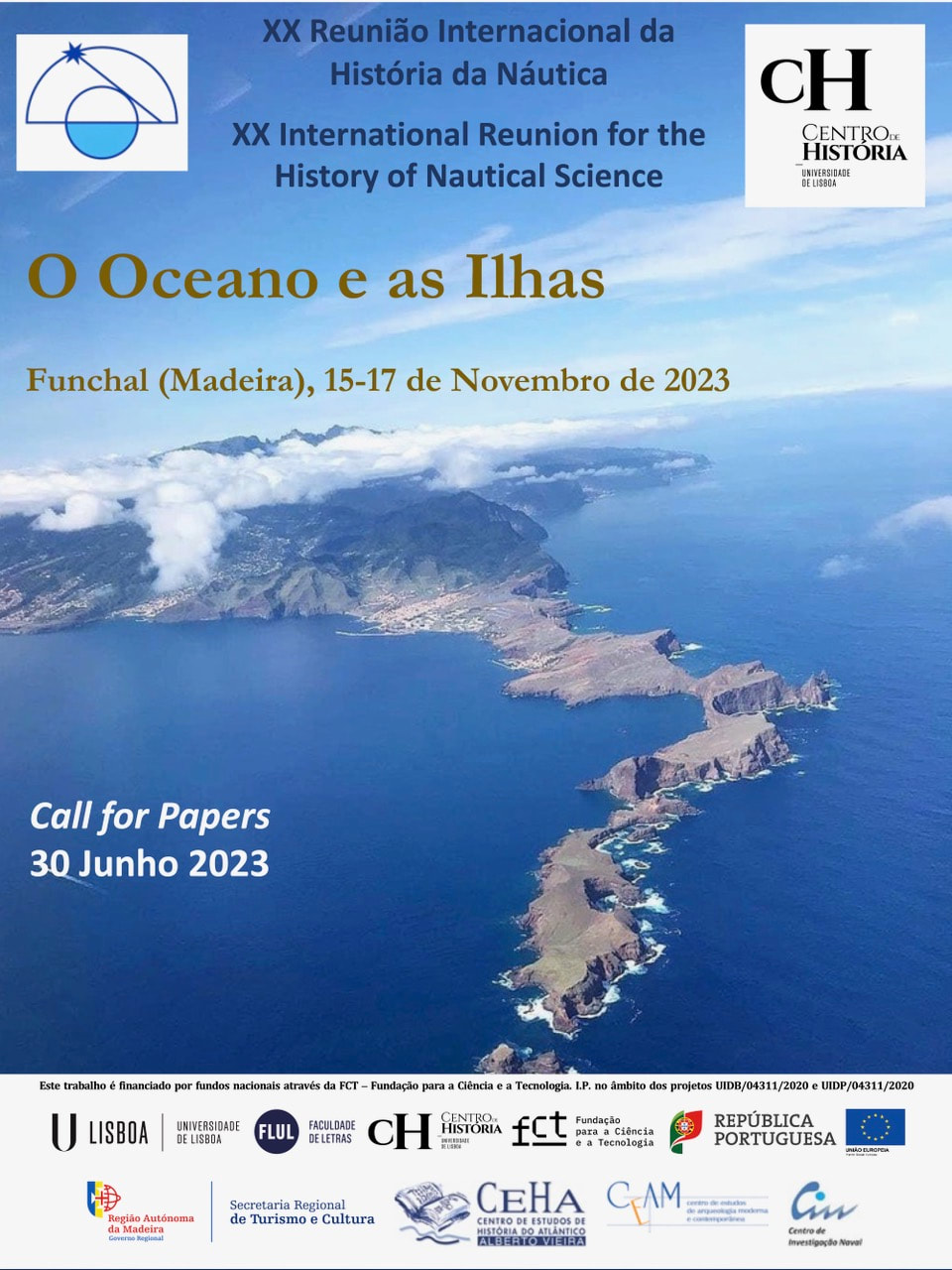
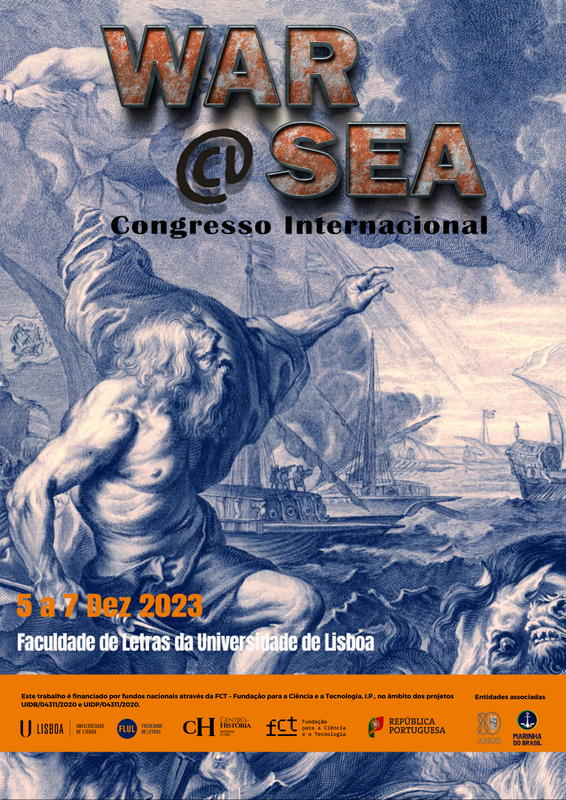
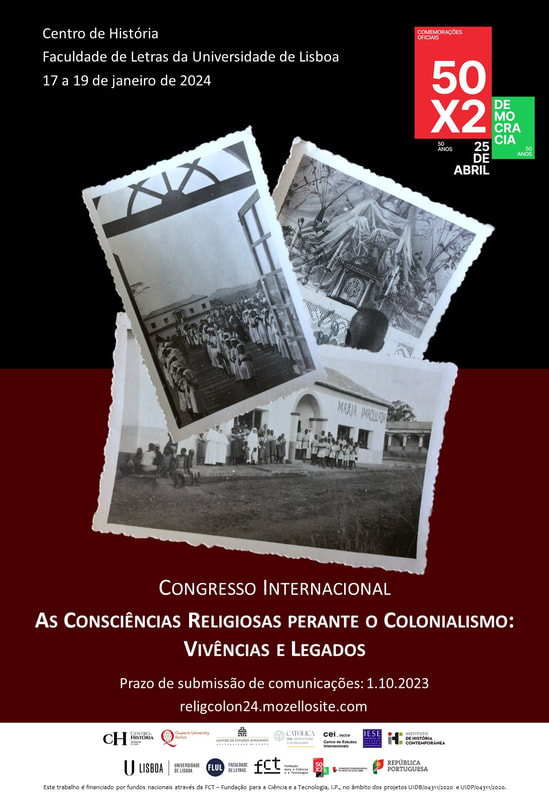
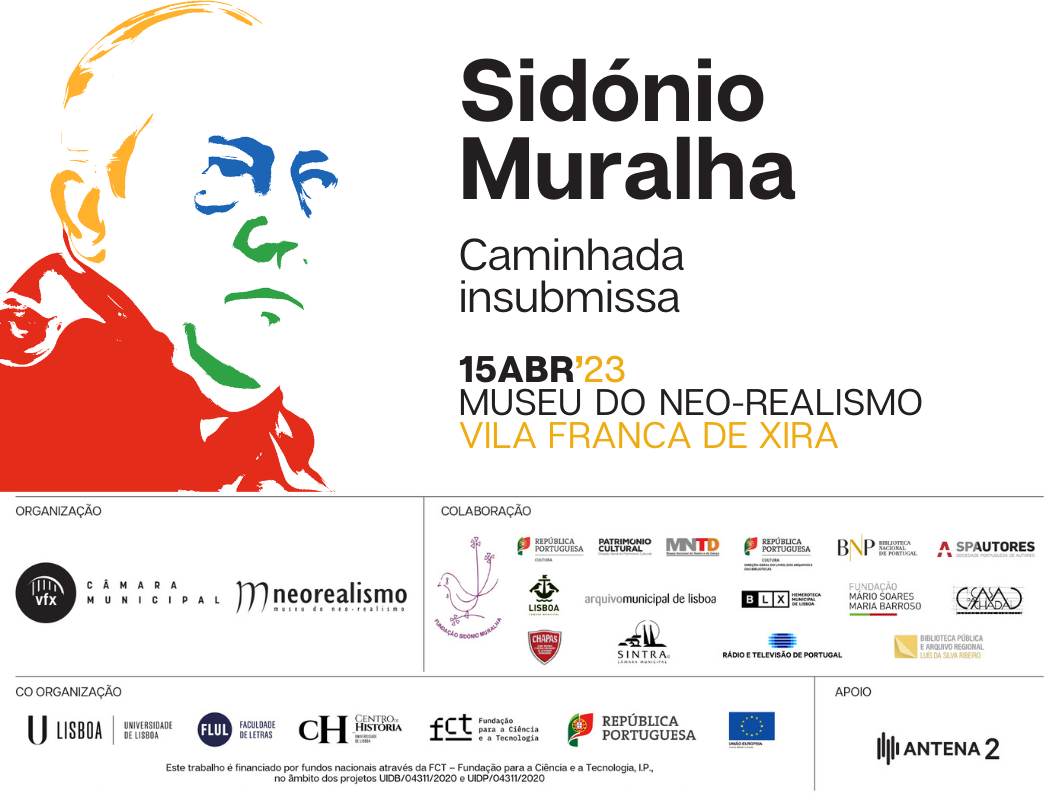
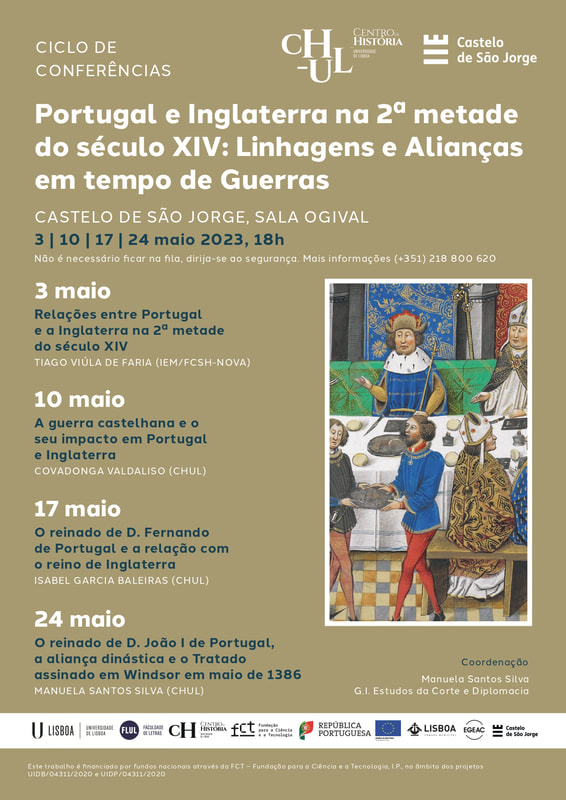
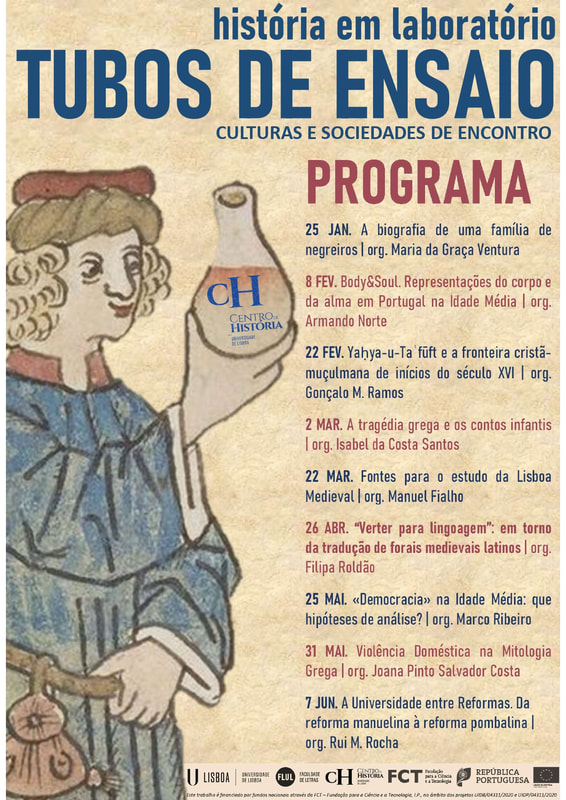
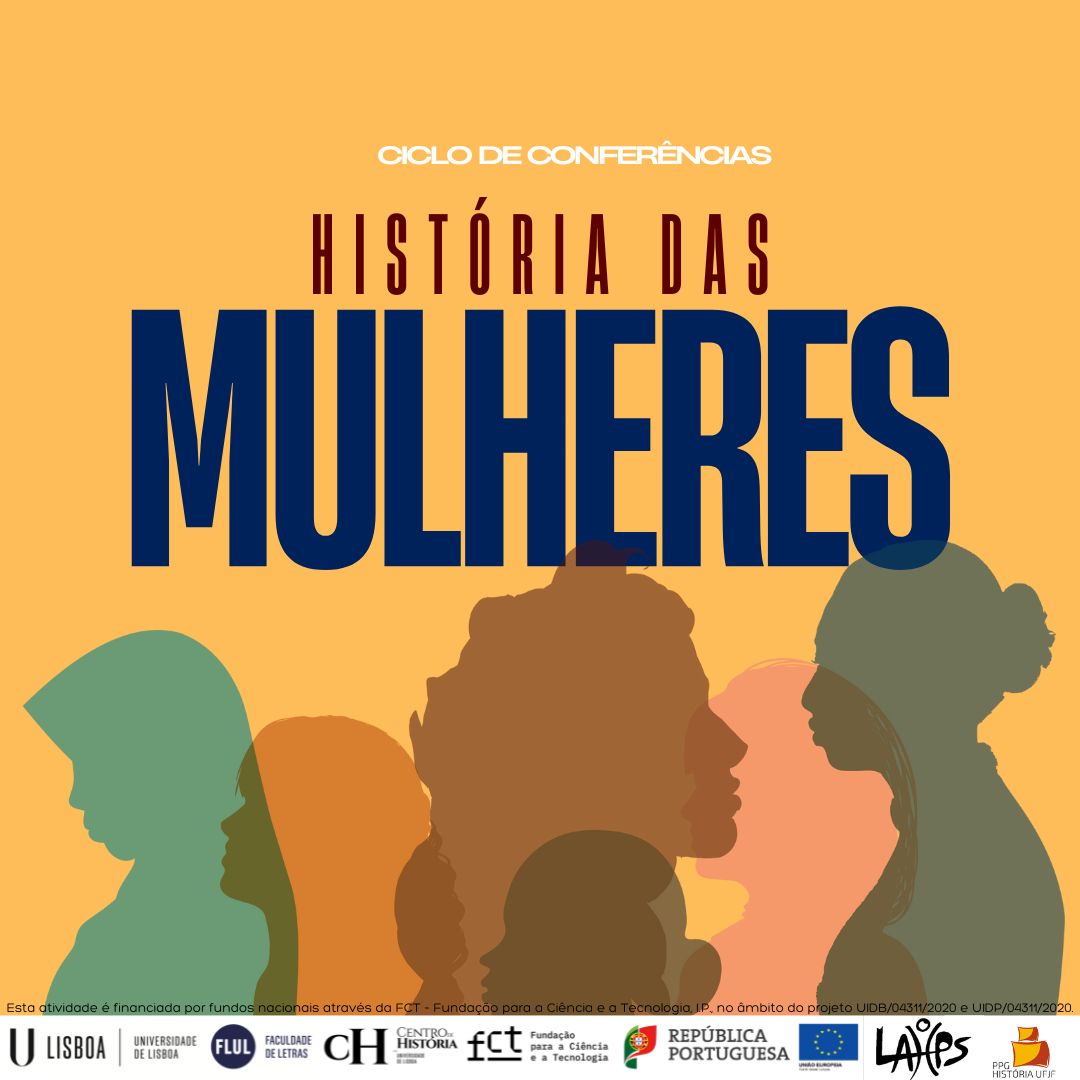
 Feed RSS
Feed RSS
